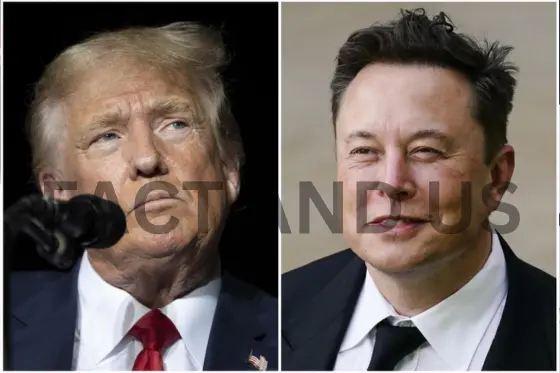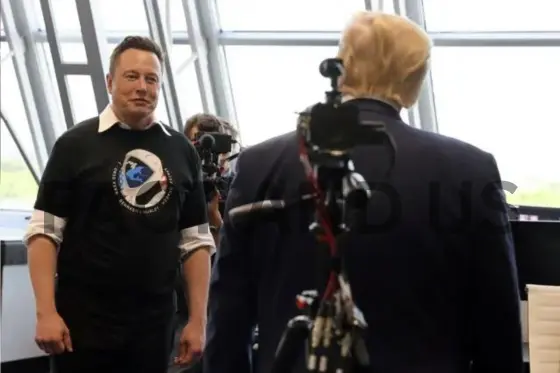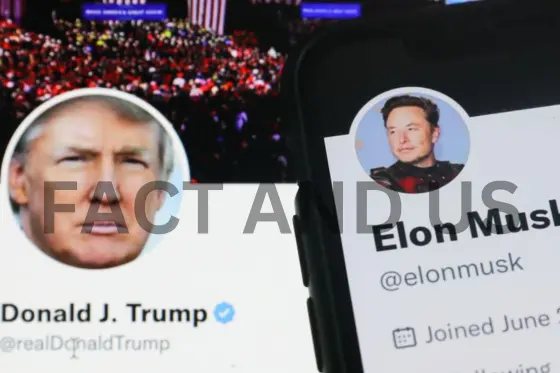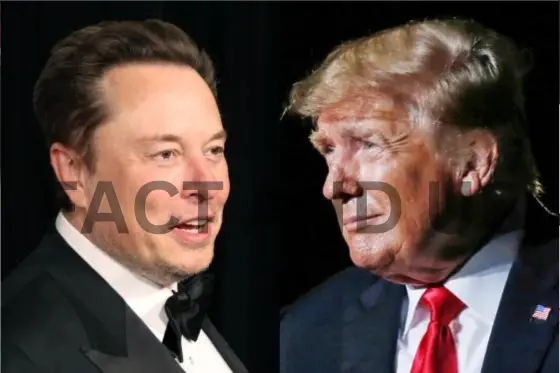It certainly wasn’t love at first sight. In fact, not so long ago, they didn’t like each other very much.
“I don’t hate the man,” Elon Musk tweeted in July 2022, “but it’s time for Trump to hang up his hat & sail into the sunset.” The Tesla and Space X founder comment was prompted by a profane Donald Trump insult—put simply, calling Mr. Musk a liar.

Contents
Overview of the differences between Musk and Trump
Trump accused Mr. Musk of lying to him about who he voted for in the last presidential election. “Elon is not going to buy Twitter,” Trump crowed to a rally crowd in Alaska. Mr. Musk did, of course, buy Twitter several months later, and he went on to endorse Trump’s Republican arch-rival, Ron DeSantis. The Florida governor even launched his presidential campaign with a glitch-ridden chat on Twitter Spaces.
But over the last few months, the relationship between Mr. Musk and Trump has not just thawed; it’s reached a positively warm and steady simmer. On Monday, the two are expected to sit down for what many expect to be a convivial chat. The specific time, format and length are unknown so far, but it looks highly likely that the interview will be broadcast on Musk’s renamed Both men will be hoping the conversation reaches an audience beyond the hyperactive paid-for users who dominate X discussion these days—and that it will be free of the technical glitches that overshadowed Mr. DeSantis’s ill-fated campaign.
The relationship between the tech tycoon and the Republican nominee has been a while in the making.


When Elon Musk endorsed Donald Trump for president last month, the Tesla founder and chief executive backed a candidate who vows to “drill, baby, drill,” “end the electric vehicle mandate,” and reduce subsidies of the sort that helped Tesla become the U.S.’s dominant EV manufacturer.
So instrumental have government loans, tax breaks, and other EV policies been to Tesla’s fast growth that despite Musk’s gradual embrace of the former president and his Republican Party rhetoric in recent years, the company continues to lobby the U.S. and state governments for benefits championed by the Democratic Party.
In February, for instance, Tesla, in a filing with the U.S. Environmental Protection Agency (EPA), urged the Biden administration to allow California to pursue stricter vehicle emissions rules than the rest of the country—an idea Trump opposes. Months earlier, in a previous filing with the agency, Tesla lobbied the government for regulations that would ban the production of most new gasoline cars by 2035—the so-called “EV mandate” that Trump and others on the American right have criticized.

The disparity is hardly the first time that the billionaire entrepreneur—himself increasingly dismissive of subsidies—has sent mixed signals on business and politics. “Elon tends to say he’s hostile to subsidies while Tesla is gobbling them up like a hungry Godzilla,” said Mike Murphy, a Republican strategist who runs the EV Politics Project, a Los Angeles-based advocacy group that seeks bipartisan support for electric vehicles.
People familiar with Musk’s management at the carmaker told Reuters his approach to subsidies is pragmatic, a willingness to accept public money if it’s there for the taking. Musk’s willingness to overlook outright Republican opposition to an industry he helped pioneer, meanwhile, signals a broader focus on goals that may not dovetail with the immediate interests of his businesses.

“Tesla is not the endgame for him,” said Andrew Ward, a management professor at Lehigh University, noting Musk’s holdings in sectors ranging from artificial intelligence to space exploration to neuroscience. Musk could “sacrifice some of the short-term interest in Tesla,” Ward added, “if it’ll satisfy the long-term interests of his ambitions.”
“There was no Tesla without California’s regulatory bodies,” California Governor Gavin Newsom said at a 2022 conference, citing the importance of the state’s credits to the carmaker’s finances.
A Reuters review of Congressional lobbying records and Tesla’s public comments to federal and state regulators shows that the company has continued working to shape public policy in favor of such benefits.
Earlier this year, in a February filing with the U.S. Department of the Treasury. Tesla said that sustained government support, by accelerating the transition away from fossil fuels, would “mitigate greenhouse gas emissions and protect the country’s public health and welfare.”
Blue to red

Mr. Musk, who became a US citizen in 2002, has said that he voted almost exclusively for Democrats for decades. But he soured on President Biden over issues including unions—Mr. Musk is opposed to efforts to organise his car workers—and over a snub. He was not invited to the 2021 White House electric vehicle summit, despite Tesla’s status as one of the world’s largest EV manufacturers. Under the Biden administration, Mr. Musk’s companies also faced a number of federal investigations over employment practices, his takeover of Twitter, and claims about Tesla’s autopilot feature.
In November 2023, he told a New York Times interviewer that he would not vote for Mr. Biden again but stopped short of supporting Trump, saying, “This is definitely a difficult choice here.”
- Who is Elon Musk, and what is his net worth?
- What is Elon Musk’s game plan?
Mr. Musk lifted the ban on the former president’s Twitter account after purchasing the company.
And perhaps more importantly, his tenure at the company has seen him go ever deeper into concerns that dovetail neatly with Trump’s campaign: government censorship and persecution, complaints about the media, opposition to immigration, and anger at “woke” ideas.
“He craves attention and is a political chameleon,” said Ryan Broderick, who writes the internet culture newsletter Garbage Day.
Mr. Broderick said Mr. Musk’s online posts shifted dramatically a few years ago. “He was tweeting neoliberal, happy-go-lucky things, and pride flags and so on, until around 2018, and the change happened pretty drastically after that,” he said. Since taking over Twitter, Mr. Musk has increasingly engaged in political controversies and has spread inflammatory—and sometimes just outright fake—news stories.
Trump’s Tech Fans
At the same time, his Silicon Valley connections link him to Trump’s inner circle. Mr. Musk was a member of the so-called PayPal mafia—stakeholders who made fortunes when the payment processor was bought for $1.5 billion and who later became prolific investors and corporate founders. PayPal founder Peter Thiel is an influential Republican who later employed JD Vance at his venture capital firm, Mithril Capital Management, then bankrolled his Ohio Senate campaign with a $10 million donation. In March, Musk met Trump at his Florida resort. A couple of months later, Mr. Musk hosted an “anti-Biden” dinner party, where the guests included Mr. Thiel and Rupert Murdoch, according to US news reports.
Mr Musk has donated money to both Democratic and Republican politicians in the past. But although he insists he is not donating directly to any presidential campaign, he recently co-founded a pro-Trump political action committee, America PAC. Political action committees have the leeway to spend huge sums supporting candidates and causes, although Mr. Musk has said reports that he will contribute $45 million a month to the PAC are overblown. “Donald Trump is scrambling because he’s looking for a way to invigorate his campaign,” Mr. Broderick said. “He’s a showman, and he understands that Elon Musk has similar instincts.”
But he questioned whether the pair would get along face-to-face. “I assume they will talk at and around each other, and it will probably not make much sense,” he said. “And maybe somebody will say something crazy.”
Stay connected with Fact and US for more such news.
